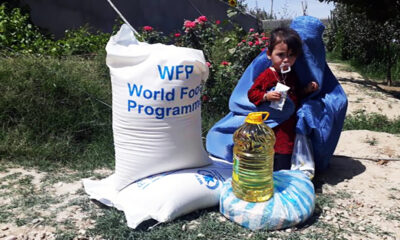Latest News
US envoy calls for world to help equip Afghan women access education and work

US Special Envoy for Afghan Women, Girls, and Human Rights, Rina Amiri, has called on the international community to equip Afghan women with the resources needed to access education, scholarships, work and other means to counter the restrictions imposed by the Islamic Emirate.
In talks with her counterparts and Afghan leaders and activists in the last month, Amiri said on X Saturday that approaches to improving the “devastating situation” in Afghanistan may differ, but those seeking to advance human rights must reflect the space for civic discourse and tolerance that they hope to engender in Afghanistan.
“We must collectively make clear to the Taliban (IEA) that, even as we engage to try to improve the devastating situation, there will be no progress in normalization unless they respect the rights of the Afghan people,” she said.
“We must continue to ensure that our statements in support of Afghans, particularly women, are matched with concrete support to equip them w/ the resources to access education, scholarships, work & other means to counter the Taliban’s (IEA) extreme & repressive measures,” she said.
Amiri said that there were several high-level events during the UN General Assembly, including a ministerial focused on the situation of Afghan women.
“The message is clear: the Taliban (IEA) cannot expect to be a part of the international community if it does not respect the rights of the Afghan people and erases half of the population,” she said.
She also said that in meetings with representatives of Muslim-majority countries on the sideline of the UNGA, there was consensus that “the Taliban’s (IEA) repressive policies, particularly against women and girls, are out of step with the world and devastating for Afghanistan.”
“We agreed that we must maintain international solidarity in support of Afghanistan and that we must continue supporting Afghan women & girls inside and outside Afghanistan through diplomatic and concrete efforts,” she said.
This comes as the Islamic Emirate has repeatedly stressed that it is committed to ensuring the rights of women and girls according to Sharia.
Latest News
Pakistani PM urges IEA to rein in terrorist groups
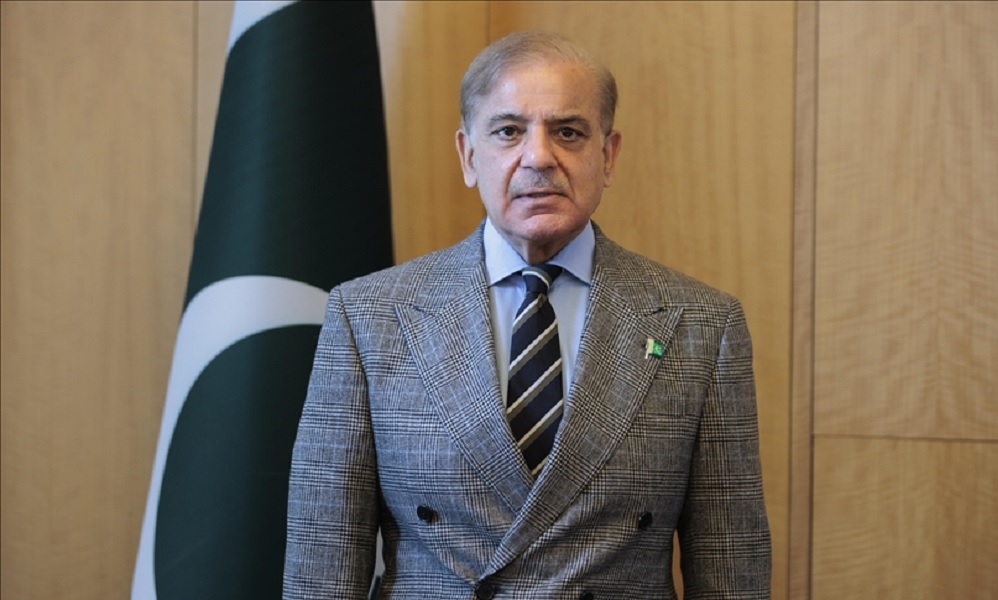
Pakistan’s Prime Minister Shehbaz Sharif has said that it’s a sad reality that the soil of neighbouring Afghanistan is being used for terrorist attacks inside Pakistan.
“Afghanistan is our brotherly country and the two countries are neighbours by nature. We have to live as good neighbours. It’s up to us how we live cordially and in a friendly way. We have asked the Afghan interim government several times that the Afghan soil should not be used as per the Doha agreement against Pakistan and its interests,” Shehbaz told the media during his visit to London, Geo News reported on Sunday.
“Sadly, terror groups such as Tehreek-e-Taliban (TTP) and other terror groups are operating from Afghanistan. They have killed innocent people inside Pakistan. These sacrifices of Pakistanis will not go in vain. My advice to Afghanistan is to rein in these terrorist groups.”
Pakistani officials have repeatedly claimed that Afghan soil is being used in attacks against Pakistan.
The Islamic Emirate, however, has denied the allegations, saying Afghanistan is not responsible for Pakistan’s “security failure”.
Latest News
Pakistan’s Punjab CM calls for ‘human response’ to Afghan girls’ education ban
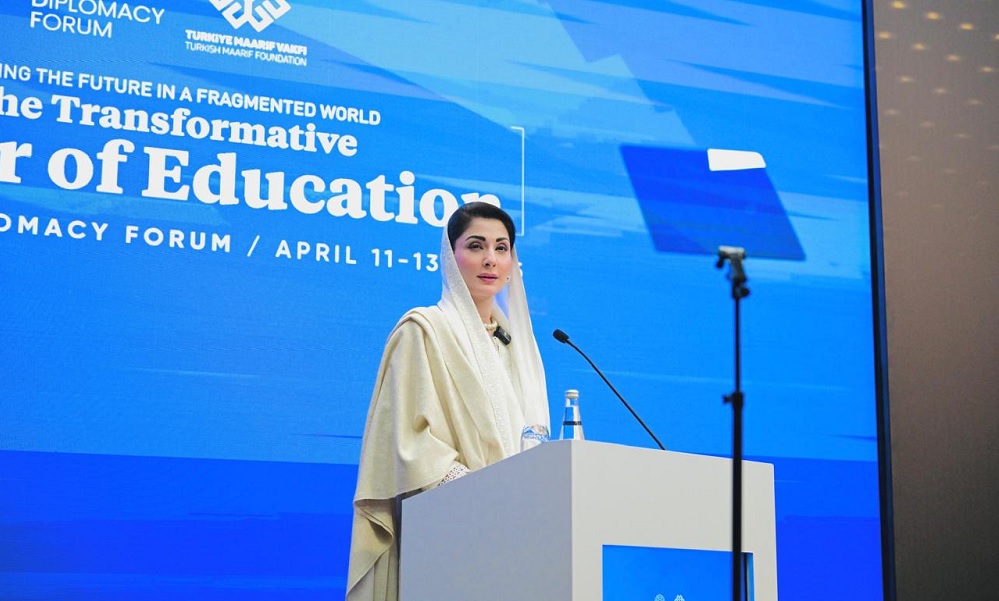
Maryam Nawaz, the chief minister of Pakistan’s Punjab province, on Saturday expressed regret over the educational restrictions on girls in Afghanistan, calling on the international community to address the issue.
Speaking at the Antalya Diplomacy Forum in Turkey, Maryam stressed that no society progresses without investing in the welfare of women and children.
“Innocent children lie under the rubble in Palestine. Girls in Afghanistan are denied access to schools. The children of Kashmir are victims of oppression. In Sudan, they walk miles for food. These are not isolated issues—they demand collective human response,” she said.
The Islamic Emirate has suspended education of girls beyond sixth grade.
This policy has been widely criticised internationally.
Latest News
IEA Supreme Leader defends public executions, says its as ‘part of Islam’

The Supreme Leader of the islamic Emirate of Afghanistan (IEA) Hibatullah Akhundzada has defended public executions and said these are an integral part of Islam.
In a voice clip reportedly taped during a speech at a seminar for Hajj instructors in Kandahar on Saturday, Akhundzada said: “We must carry out disciplinary measures, perform prayers and acts of worship. We must enter Islam completely. Islam is not just limited to a few rituals; it is a comprehensive system of all divine commands.”
Not a single command of Islam should be left unfulfilled, he is heard saying on the voice clip, which was posted to X by the IEA’s spokesman Zabihullah Mujahid.
God had commanded people to pray and to enforce his punishments, said Akhundzada, adding that the IEA did not wage war for power or wealth but rather to “implement Islamic law”. He rejected criticism of the executions.
This comes after widespread condemnation following the execution by firing squad on Friday of four men convicted of murder.
Akhundzada has previously rejected the need for Western laws in Afghanistan.
He said Saturday: “Yesterday, executions were carried out. You saw how much protest was raised in the world, and said that they [IEA] kill people, that they are oppressors, that they terrorize people. They call this terror; they call this against Sharia; but this is a Sharia order to take revenge. One order is to implement the orders of Allah. One order is to impose punishments,” said Akhundzada.
He added that the Islamic Emirate is facing a great test but they will not bargain with the world over Islam, religion, and the Prophet (PBUH).
-

 Sport4 days ago
Sport4 days agoAfghanistan win U-19 cricket series despite rain-impacted loss to Nepal
-
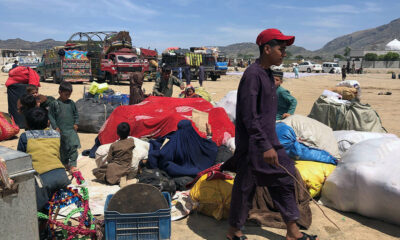
 Latest News5 days ago
Latest News5 days agoPakistan expels thousands of Afghan nationals in fresh drive, says UNHCR
-

 Latest News5 days ago
Latest News5 days agoIran’s Vice President advocates stronger ties with neighbors, especially Afghanistan
-

 Regional5 days ago
Regional5 days agoUS energy secretary sees tighter sanctions on Iran without deal
-
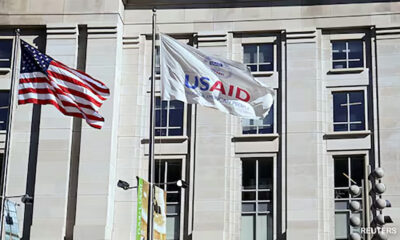
 Latest News5 days ago
Latest News5 days agoTrump administration moves to restore some terminated foreign aid programs, sources say
-

 Latest News5 days ago
Latest News5 days agoBigdeli updates Iran’s FM on current status of bilateral relations with Kabul
-
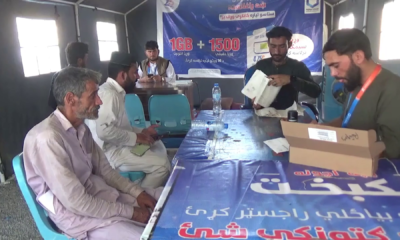
 Latest News4 days ago
Latest News4 days agoAWCC distributes free SIM cards to returning refugees from Pakistan
-

 International Sports5 days ago
International Sports5 days agoIPL 2025: Arya slays CSK for Punjab Kings










